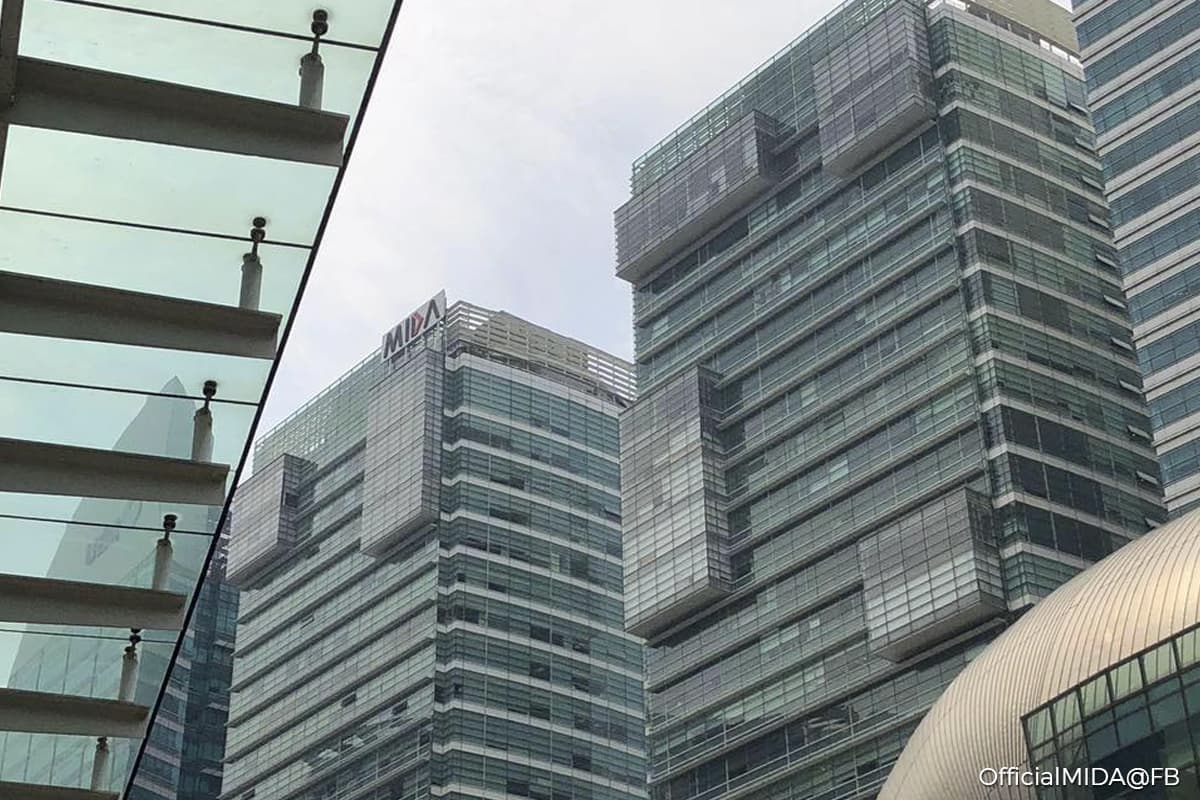
KUALA LUMPUR (Sept 24): Malaysia recorded a total of RM64.8 billion worth of investments in the manufacturing, services and primary sectors in the first six months of 2020 (6M20) despite multiple headwinds on the global front, said the Malaysian Investment Development Authority (MIDA).
In a joint statement with the Ministry of International Trade and Industry (MITI), it said the investments involved 1,725 projects and would create 37,110 employment opportunities in Malaysia.
MIDA said of the total investments approved, domestic direct investment (DDI) accounted for 69.8%, or RM45.3 billion, while foreign direct investment (FDI) made up the remaining RM19.5 billion.
It said Singapore (RM4.9 billion), Switzerland (RM2.8 billion), China (RM2.2 billion), the US (RM2.2 billion) and Thailand (RM1.8 billion) were the top five sources of FDI for the manufacturing, services and primary sectors during the period.
For approved projects by state, the five major states — namely Sabah, Selangor, Pulau Pinang, Kuala Lumpur and Johor — contributed RM47.1 billion (72.6%) to total approved investments in January to June 2020.
The manufacturing sector attracted the largest portion of approved investments in the first half of 2020 (1H20), contributing more than half (55.1%) or RM35.7 billion, followed by the services sector with 44.2% of investments or RM28.6 billion, and the primary sector with 0.7% of approved investments or RM500 million.
For 6M20, the manufacturing sector attracted the largest portion of approved investments, contributing RM35.7 billion, which was only a 3% decrease from the corresponding period of last year.
Investments approved for the manufacturing sector were mainly in petroleum products, including petrochemicals (RM13.6 billion), machinery and equipment (M&E) (RM5.2 billion), electrical and electronics (E&E) products (RM5 billion), food manufacturing (RM2.1 billion), scientific and measuring equipment (RM2 billion), transport equipment (RM1.8 billion), chemicals and chemical products (RM1.6 billion), and non-metallic minerals (RM1 billion).
These made up 90.2% of total approved investments in this sector.
MITI and MIDA said with a total of 398 projects, these newly approved investments are expected to create 26,940 jobs for the country.
The jobs being created include managerial roles (1,925), technical and supervisory roles (4,887), craft skill professionals (3,226), machinery operators and installers (11,117), as well as sales and clerical personnel (1,881).
The states that recorded the highest total approved investments in the manufacturing sector during the period were Sabah, Pulau Pinang, Johor, Selangor and Terengganu.
These states collectively contributed RM29.7 billion.
Meanwhile, for January to June 2020, the services sector recorded 1,316 approved projects with investments worth RM28.6 billion.
These services projects approved in 6M20 are expected to create 10,114 jobs for the economy.
MITI and MIDA said the majority of the main services sub-sectors showed a significant decline in approved investments except for support services and MSC status projects.
The top five contributors of approved investments in the services sector were real estate (RM12.2 billion), utilities (RM9.4 billion), support services (RM2.4 billion), financial services (RM1.8 billion) and telecommunications (RM1.3 billion).
The primary sector attracted investments worth RM471 million during 6M20.
This sector comprises three main sub-sectors, namely mining, agriculture and plantations, and commodities.
All approved investments in this sector during the period were from domestic sources.
Senior Minister of International Trade and Industry Datuk Seri Mohamed Azmin Ali said while foreign investments assume an essential role in the development of the country, greater emphasis is being put in place to drive domestic investments and turning more domestic companies into global players.
“We will continue to prioritise the acceleration of technology adoption in all segments of the economy by harnessing the potential of Industry 4.0 to boost Malaysia's productivity and competitiveness,” he said.
Mohamed Azmin said Malaysia’s economy is set to regain its momentum going into 2H20.
“However, the pandemic is far from over and the government is closely monitoring its progress as the nation journeys towards a recovery.
“MIDA seeks to better support investments through continuous engagements and collaborations with the private and public sectors towards broadening prosperity for the country,” he said.